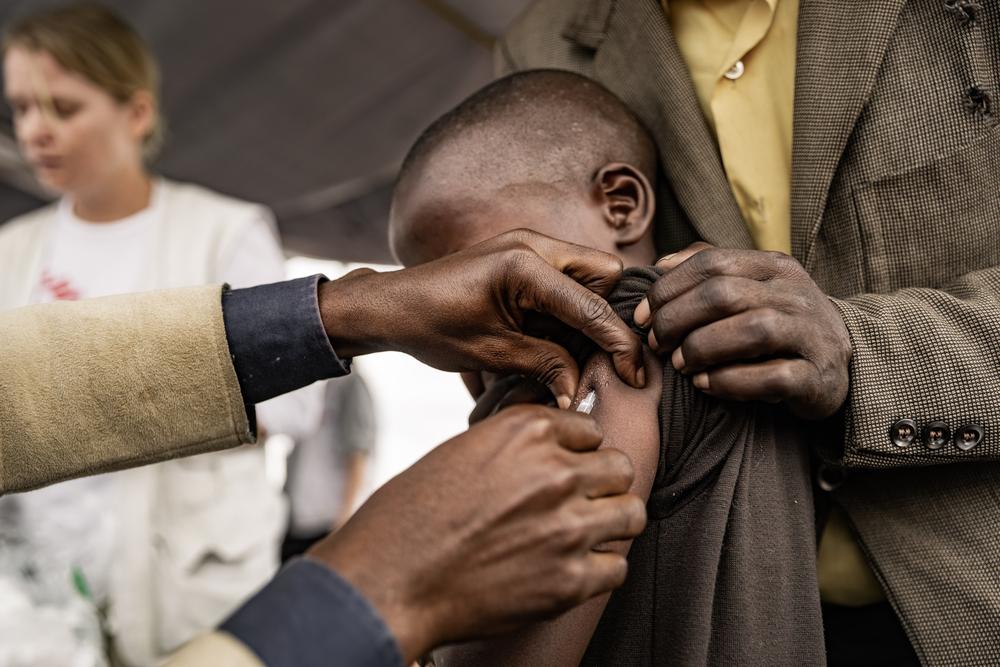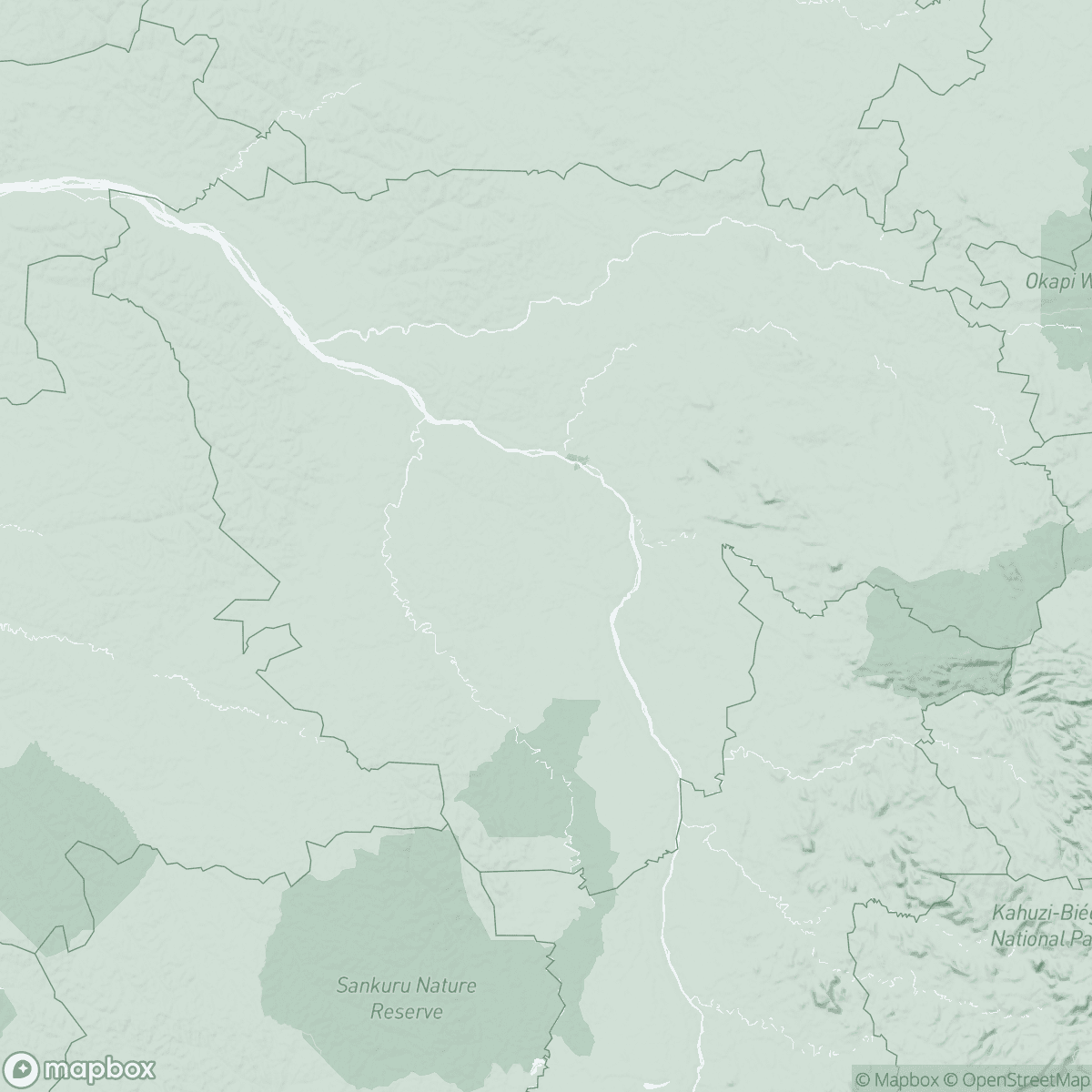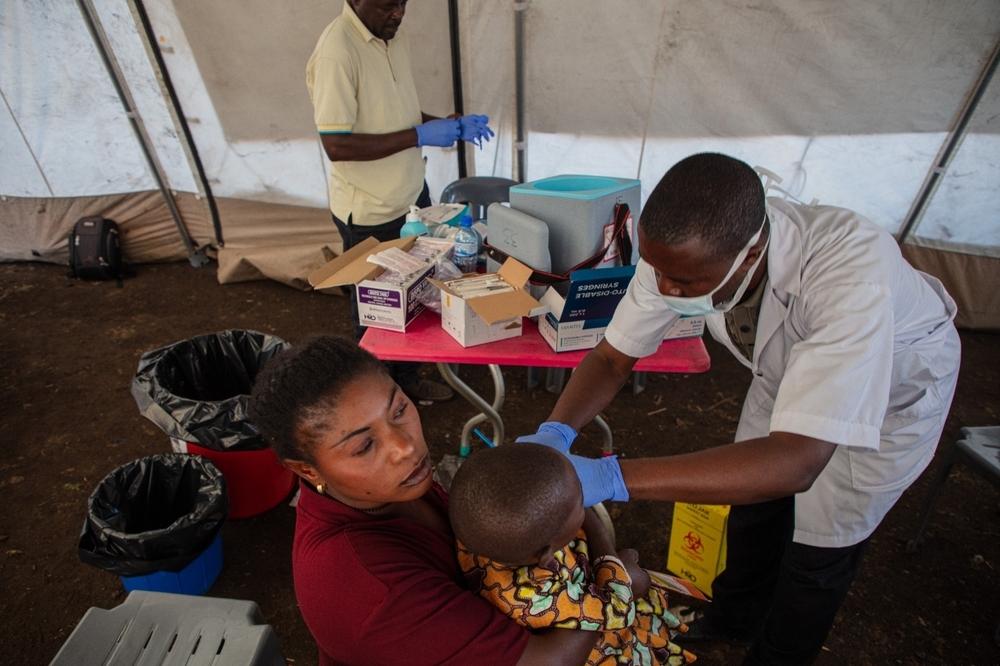
Vaccinating over 35,000 children in Goma
In 1 click, help us spread this information :
Médecins Sans Frontières (MSF), in collaboration with the Ministry of Health (MoH), has completed a multi-antigen vaccination campaign, aimed at protecting tens of thousands of children, including those who have been displaced by recent violence in North Kivu.
Since March 2022, more than one million people have fled the fighting linked to the resurgence of violence between various armed groups in North Kivu province in the Democratic Republic of Congo (DRC). Hundreds of thousands of them currently live in dire conditions in overcrowded camps in Goma and its surrounding area.
Between July and October 2023, MSF teams alongside the MoH, vaccinated some 35,000 children under the age of five, with eight vaccines against 11 diseases including; diphtheria, hepatitis, whooping cough, pneumonia, polio and measles. The campaign took place across 16 vaccination sites in Bulengo, Lushagala, Shabindu and Rusayo displacement camps in Goma where MSF works and targeted both the displaced and host communities.
“Normally, children are scheduled to receive these vaccines before the age of 11 months, but the situation in North Kivu makes it extremely difficult to maintain regular routine vaccination activities,” explains Dr Colette Badjo, MSF medical coordinator.
There are the geographical and security challenges which make it hard for health care workers to reach remote villages with the vaccines intact and then properly stored. But also, for parents who wish to vaccinate their children, even if they can afford the transportation and consultation costs, and even if they manage to find a functioning health centre, often there are either no health staff or no vaccines left.”
All these factors were compounded by the COVID-19 pandemic, with the World Health Organization observing the largest sustained decline in childhood vaccination in DRC in approximately 30 years. With the additional displacement of people due to the recent violence, there are huge gaps in the vaccine coverage.
For those children living in the displacement camps, they are extremely vulnerable to illness, and even more so with terrible living conditions, including lack of basic sanitation, water and food and overcrowding, further exacerbated by recent influxes of people into the camps.
“In collaboration with the MoH, we decided to organise a catch-up vaccination campaign for children aged up to 59 months in four of the displacement sites where MSF teams are working. Our aim is to reduce the number of 'zero dose' children, those who have received any vaccine, apart from the tuberculosis vaccine received immediately after a medical delivery; and to rapidly increase the level of immunity against vaccine preventable diseases in a context where children are very vulnerable.
While we don’t expect that we will stop disease outbreaks in the camps, we do expect to see less illness and deaths of children under five,” says Dr Colette Badjo.
In other provinces of the DRC, MSF teams regularly organise multi-antigen vaccination campaigns in collaboration with the MoH, most recently in Tshopo province.
MSF teams have been working in 12 camps for displaced people around the city of Goma, providing free medical care, supplying drinking water and building latrines and showers according to the most urgent needs. Our teams have also responded to the cholera and measles epidemics that have affected some camps by treating patients and organising vaccination campaigns.
In North Kivu, we continue to provide free essential medical care in the health zones of Rutshuru, Kibirizi, Bambo, Binza, Mweso, Masisi and Walikale.


